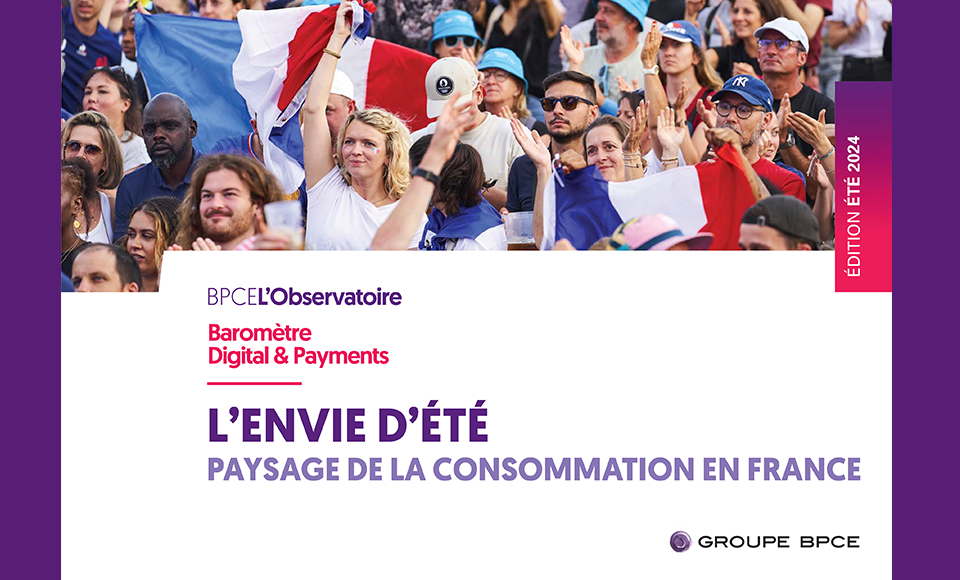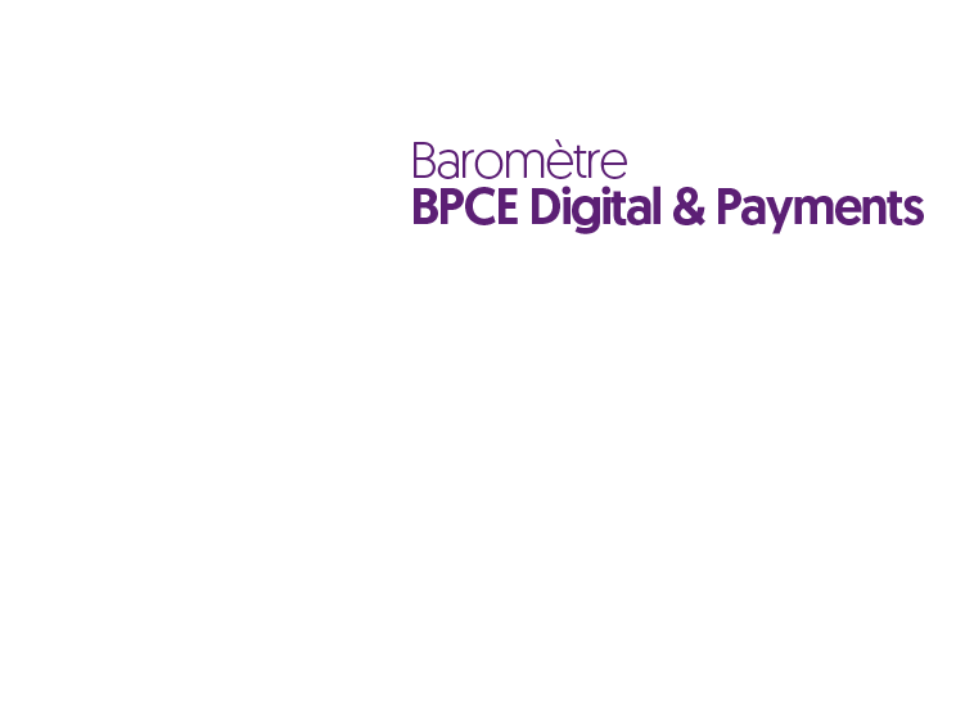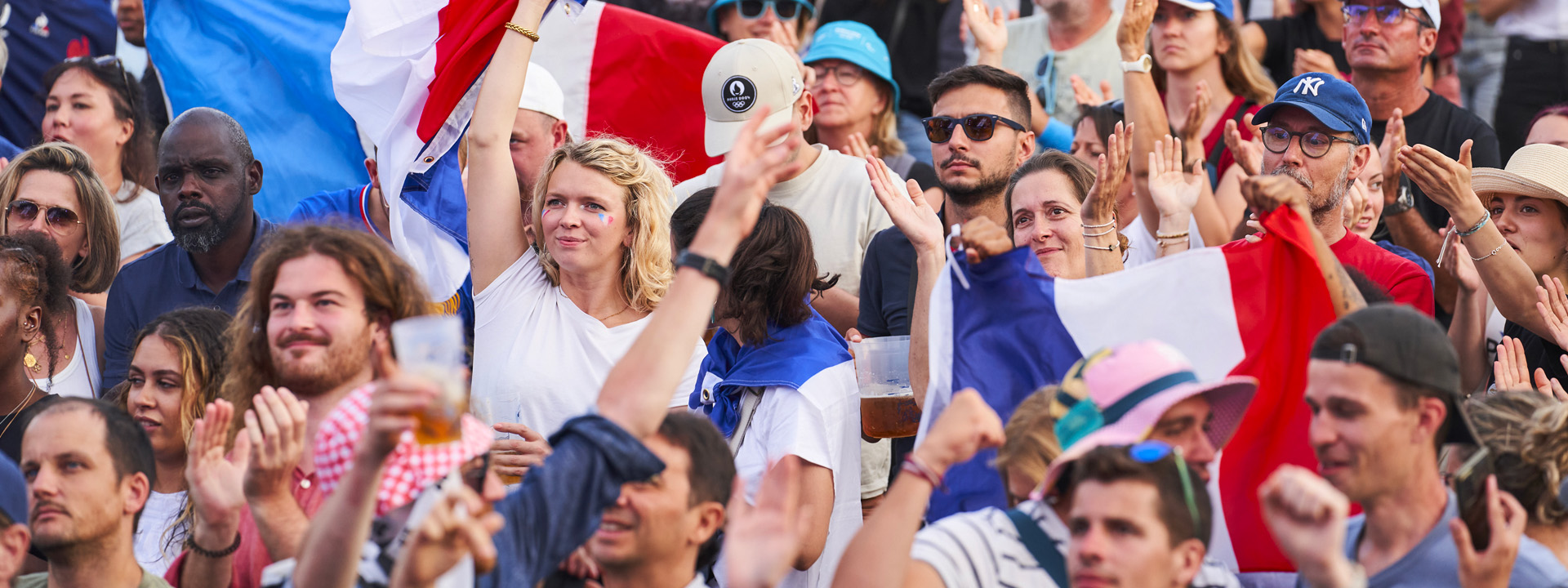

The Olympic and Paralympic Games Paris 2024 give a boost to consumer spending in France during the summer
[September 2024] The Digital & Payments Barometer survey carried out by BPCE L'Observatoire analyzed consumer spending patterns in France during the Olympic & Paralympic Games Paris 2024 based on anonymized data obtained from the 20 million cards issued by the Banques Populaires and Caisses d'Epargne and payments made with 400,000 Groupe BPCE merchant customers.


This ‘enchanted interlude’ of the Olympic & Paralympic Games Paris 2024 brought a welcome boost to consumer spending in France. Although it is true that the impact of the Games was confined to specific geographical regions and industrial sectors, the positive spillover effects were nonetheless significant. There was a surge in the number of foreign tourists arriving in the country and an uptick in optimism against a general background characterized by more limited consumption for the French.
Social outings in the Paris region boosted by the excitement generated by the Games
The most direct effect of the Olympic & Paralympic Games Paris 2024 can be seen in the Ile-de-France (Greater Paris region) where the majority of sporting events were concentrated. The excitement generated by the Games was reflected in increased spending by French consumers in several sectors related to social outings and leisure activities:
- Tourism and cultural activities: +58% during the two weeks of the Olympic Games and +30% during the Paralympic Games (compared to the same periods in 2023),
- Fast food: +9% during the Olympic Games and +12% during the Paralympic Games,
- Bakeries: +14% during the Olympic Games and +16% during the Paralympic Games,
- Bars: +6% during the Olympic Games and +4% during the Paralympic Games,
- Restaurants: +4% during the Olympic Games and +5% during the Paralympic Games.
Despite the organizational and security constraints occasionally impacting certain retailers, the Olympic Games encouraged the French to go out and spend more near the Olympic venues. This observation was confirmed by the rise in both the average amount charged to bankcards and the number of cards being used (cards for which at least one transaction was recorded in a given sector).
Immense crisscrossing travel patterns between Parisians and provincials
During the Olympic Games, 64% more Parisians left the Ile-de-France region for other parts of France compared to the same period the previous summer. Their safe haven destinations were Greater Western France, the Southeast and Southwest. In contrast, however, no increase in the annual exodus abroad was observed: the number of French bankcards recording a transaction outside the country during the Olympic Games remained stable (down by 1%).
The inclination to leave the Greater Paris region remained relatively elitist, however. During the Olympic Games, for example, it concerned only +57% of employees and blue-collar workers, whereas it applied to +118% of people belonging to executive or managerial categories. At the same time, there was a reverse flow from the regions to Paris: +28% of provincials visited the capital during the Olympic Games, and a further +28% during the Paralympic Games.
The following regions saw an increase in their representation during the Games (based on cardholders):
1 – Corsica: + 91% during the Olympic Games; + 94% during the Parlympic Games
2 – Greater Eastern France: +43% during the Olympic Games; +46% during the Paralympic Games
3 – Overseas territories: +40% during the Olympic Games; +51% during the Paralympic Games
Games that drove a surge in foreign tourists
The Olympic mantra adopted by foreign tourists visiting France for the Games could be summed up as “greater numbers, from further afield, and more pleasure-seeking.” The attractiveness of the Games was a welcome ray of sunshine in the midst of a more mixed climate for summer consumption patterns.
The Games attracted tourists in record numbers. Compared to the already exceptional summer of 2023, foreign tourist numbers in the 13 départements hosting the Olympic events jumped by +31% in the first week of the Games and by +34% in the second. The same phenomenon was repeated for the Paralympic Games, albeit at a slower pace, with a +10% increase in the number of visitors.
Among the nationalities most represented during the Olympic Games, the top five remained unchanged: Americans, Belgians, British, Germans, and Dutch (replaced by Italians during the Paralympics).
In contrast, however, there were impressive breakthroughs from a number of new origins: for example, Turkey (+44% during the Olympic Games; +45% during the Paralympic Games), Colombia (+40% for the Olympic Games; +33% for the Paralympic Games) and Kazakhstan (+31% during the Olympic Games; +43% during the Paralympic Games). For these visitors from more distant places, the Games acted as a gigantic advertising campaign for France as a holiday destination.
Even if foreign fans were, on average, a little less lavish in their spending patterns than regular tourists, their influx largely benefited the industrial sectors related to socializing and leisure activities. During the two weeks of the Olympic Games, spending peaked at +40% in restaurants and +52% in bars. This phenomenon was repeated during the Paralympic Games, albeit at a lower level: +10% in restaurants, +26% in bars. On the other hand, during the Games, consumption profiles remained as heterogeneous as usual: for example, while the average restaurant bill of a Gulf tourist exceeded 110 euros, that of a German, Belgian, Italian or Spanish tourist remained more modest, at around 35 euros.
More occasional effects on other sectors of French consumption
We should also mention the strong demand for household appliances during the sales period: in this sector, spending rose by 9% in the month preceding the opening of the Games, with an average basket up by 35 euros to 178 euros. Fans wanted to make sure they had the equipment they needed to follow the athletes’ exploits.
And, finally, we should emphasize the fine performance achieved by the gambling sector, with a 21% increase in sales between the summer of 2023 and the summer of 2024 in a context conducive to sports betting with not only the Olympic and Paralympic Games, but also the Euro soccer championships.